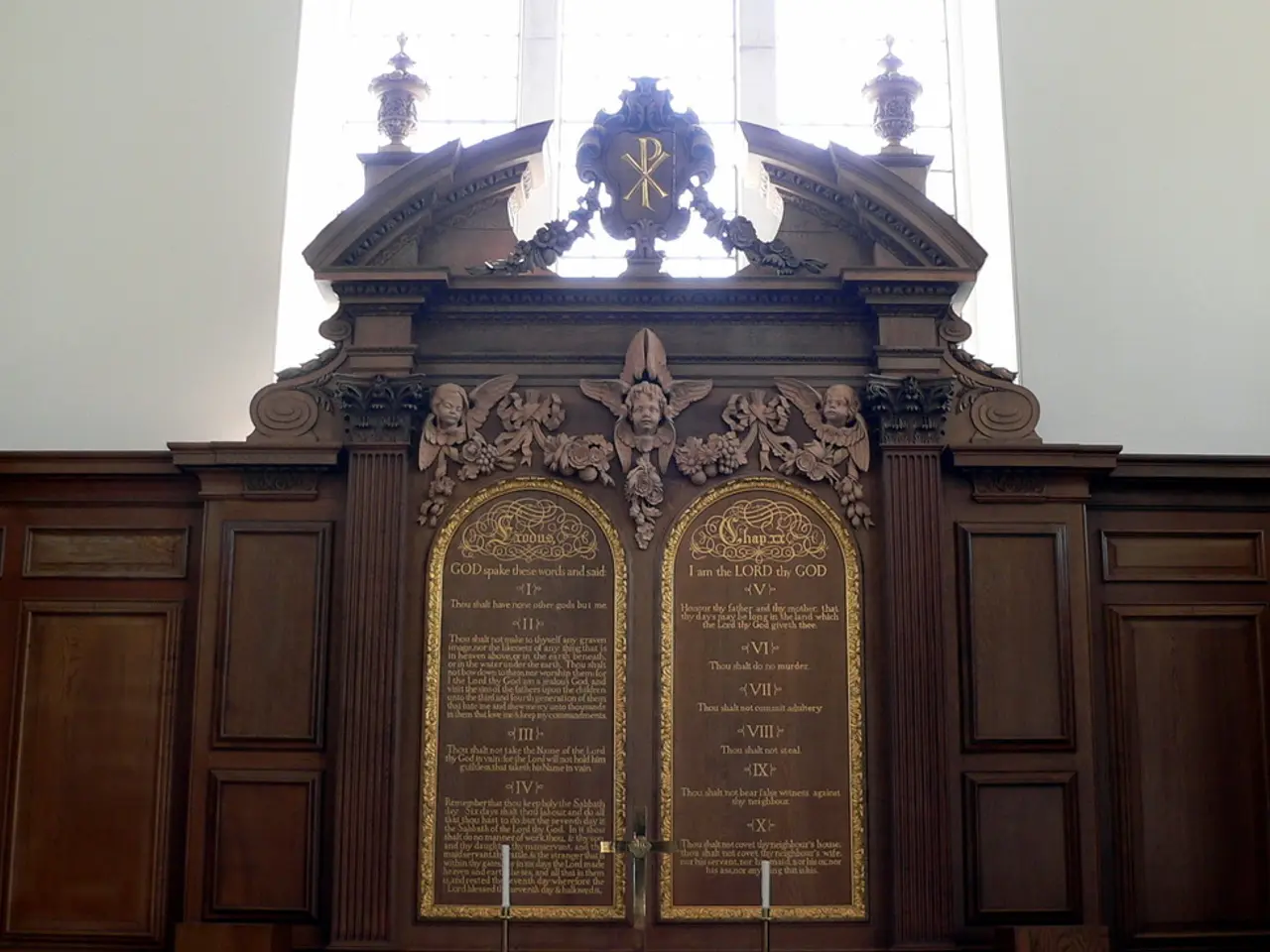Exhibition of 'Regeneration' at the Detroit Institute of Arts
Article: "Regeneration: Black Cinema 1898 - 1971" at the Detroit Institute of Art
The Detroit Institute of Art (DIA) is presenting a significant exhibit, "Regeneration: Black Cinema 1898 - 1971," that celebrates the legacy of African American filmmakers and actors from the dawn of cinema to 1971. This curated exhibition, running until June 23rd, 2024, offers visitors a unique opportunity to delve into the history and contributions of Black cinema, shedding light on an often underrepresented segment of film history[1][4].
Upon entering the first gallery, visitors are greeted with a quote from James Baldwin: "History is not the past. It is the present. We carry our history with us. We are our history." The exhibit takes visitors on a timeline journey, showcasing portraits of Black historical figures and their respective publications, including publications like The Crisis, Up from Slavery, and The North Star, which were platforms for civil rights advocacy and addressing racial injustice[2].
The second gallery explores problematic and controversial Hollywood films that portrayed African Americans in a racist and stereotypical light, such as 'Uncle Tom's Cabin' and 'The Birth of a Nation.' However, the exhibit also highlights the resilience, creativity, and cultural impact of Black artists in cinema, with segments dedicated to showcasing the most talented dancers like the Nicholas Brothers, who were known for their dynamic and captivating performances[3].
The Nicholas Brothers' electric tap-dance routine to Cab Calloway's jazz composition "Jumpin' Jive," as seen in the film Stormy Weather, is one of the many highlights in the exhibit. The "Stars and Icons" gallery features clips from films like Stormy Weather (1943) and Cabin in the Sky (1943), with mannequins displaying outfits from these films.
The exhibit also pays tribute to dedicated civil rights activists like Paul Robeson, a successful actor who starred in multiple Broadway productions, and Harry Belafonte, who contributed to bail money for Dr. Martin Luther King Jr. and other civil rights activists, and used his platform as an artist to fight against racial injustice[5].
The seventh and last gallery, Agency, highlights Black directors like Madeline Anderson, Robert L. Goodwin, William Greaves, Gordon Parks, and Melvin Van Peebles, and their films addressing social issues within the Black community. Madeline Anderson's 1970 documentary I Am Somebody focused on the 1969 strike of Black female medical workers for equal pay in Charleston, South Carolina.
The Detroit Institute of Art, located in Midtown Detroit along Woodward Avenue, houses over 65,000 artworks spanning various time periods. It has hosted temporary exhibits like 'Masterpieces of Early Italian Renaissance Bronze Statuettes,' 'Van Gogh in America,' and 'Printmaking in the Twenty-First Century.' The "Regeneration: Black Cinema 1898 - 1971" exhibit is just another addition to the museum's diverse and captivating collection.
[1] https://www.detroitinstituteofarts.org/exhibitions/regeneration-black-cinema-1898-1971 [2] https://www.detroitnews.com/story/entertainment/arts/2023/02/10/detroit-institute-arts-regeneration-exhibit-honors-black-cinema-history/68323447007/ [3] https://www.nytimes.com/2023/02/10/arts/design/regeneration-black-cinema-exhibit-detroit.html [4] https://www.cbsnews.com/detroit/news/detroit-institute-of-arts-regeneration-black-cinema-exhibit-honors-african-american-contributions-to-film/ [5] https://www.washingtonpost.com/entertainment/2023/02/10/regeneration-black-cinema-exhibit-detroit-institute-arts-honors-history-african-american-filmmakers/
- The exhibit, "Regeneration: Black Cinema 1898 - 1971," at the Detroit Institute of Art offers a spotlight on the often underrepresented history of African American filmmakers and actors.
- Visitors will find a unique collection of news and historical artifacts, such as portraits of Black historical figures and their respective publications, in the exhibit.
- The exhibit features a gallery on culture, showcasing the creativity and impact of Black artists in cinema, including the celebrated tap-dance performances by the Nicholas Brothers.
- Opinion and social issues are also highlighted in the exhibit, with sections dedicated to civil rights activists, such as Paul Robeson and Harry Belafonte.
- Lifestyle and fashion-and-beauty become part of the narrative through mannequins displaying outfits from films like 'Stormy Weather' and 'Cabin in the Sky.'
- Food-and-drink plays a role in the exhibit as well, with clips from films that have historical significance, like Cab Calloway's "Jumpin' Jive."
- The exhibit wouldn't be complete without addressing important relationships and pets, showcasing films made by Black directors like Madeline Anderson, who focused on the 1969 strike of Black female medical workers for equal pay in Charleston, South Carolina. Travel enthusiasts will find additional artworks spanning various time periods at the Detroit Institute of Art. Shopping for unique items is also an option, as the museum hosts temporary exhibits like 'Van Gogh in America' and 'Printmaking in the Twenty-First Century.'




